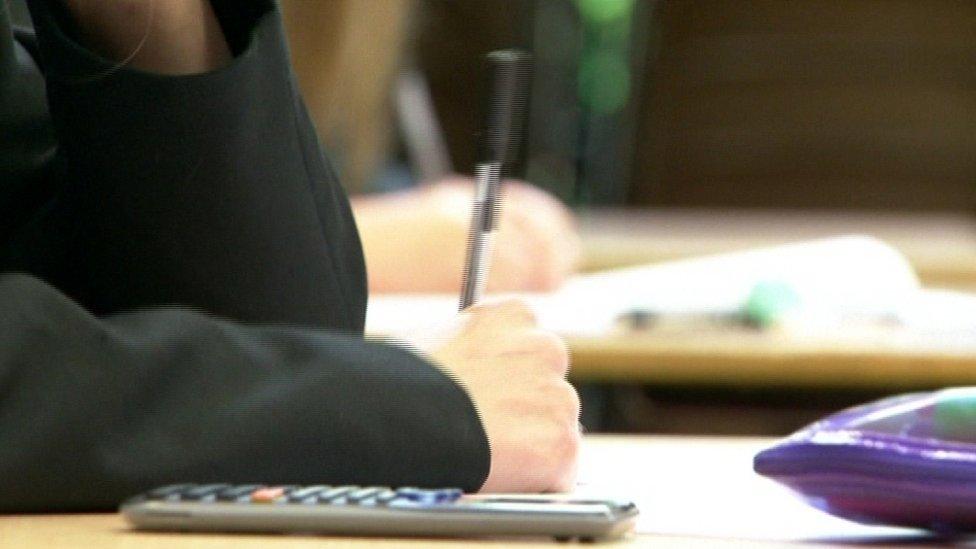NI primary school pupils excel in reading tests
- Published
- comments
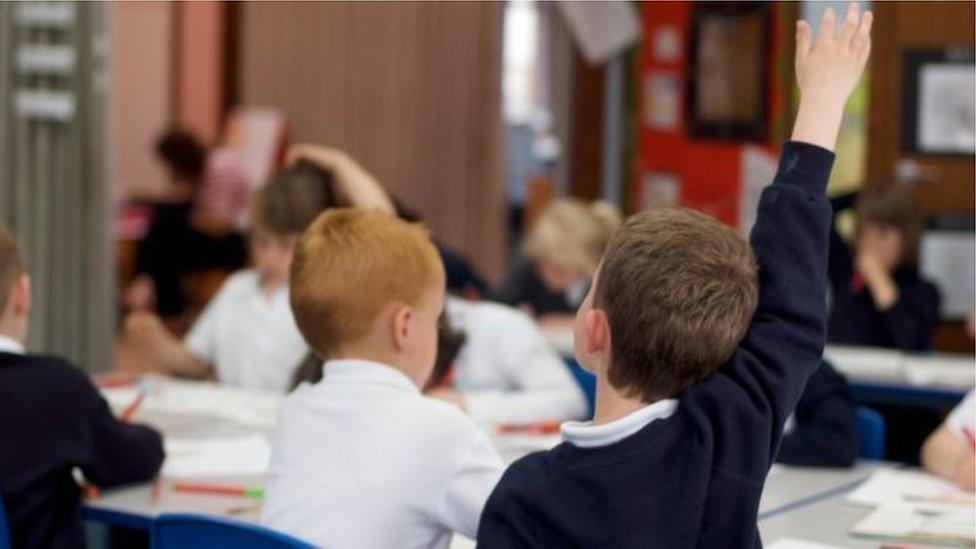
The study, which examines reading skills at the age of 10, is carried out every five years
The reading performance of primary school children in Northern Ireland has been ranked 6th in the world in a major international assessment.
The Progress in International Reading Literacy Study (PIRLS) involved 320,000 children in 50 countries.
Only pupils in Russia, Singapore, Hong Kong, Ireland and Finland achieved higher reading scores than NI pupils.
Pupils in England were ranked 10th in the international study, which is undertaken every five years.
Maintaining high position
PIRLS is designed to investigate children's "reading literacy" and associated factors towards the end of their primary school career.
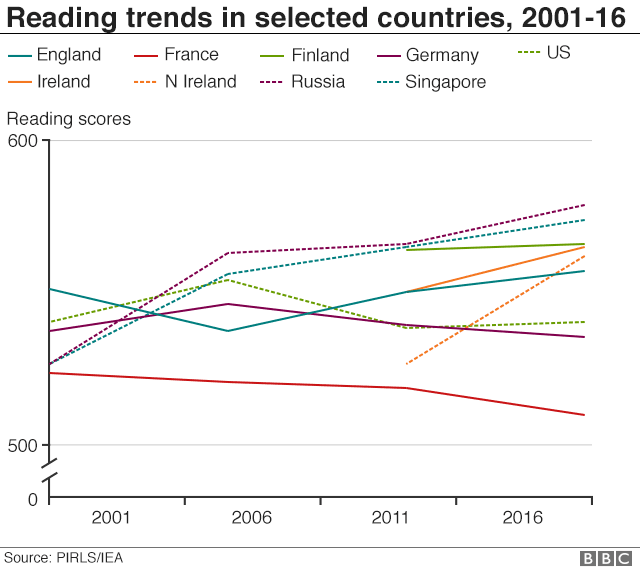
First run in 2001, it uses data from a sample of 10-year-old pupils, their parents, their teachers and head teachers.
A total of 134 primary schools in Northern Ireland took part in the latest study in 2016, out of about 12,000 schools globally.
Their pupils' performance maintained the high position Northern Ireland attained in the 2011 PIRLS achievement rankings.
Their reading and comprehension score in 2016 was 565, an improvement on 558 in 2011 and significantly above the international mean.
Reading with children
The report's authors found that, globally, children who achieved the best reading and comprehension scores:
Had parents who liked to read to them and access to books at home
Attended well-resourced schools where reading was prioritised
Attended school regularly and were not tired or hungry at school
Liked reading in and out of school
A high proportion of parents in Northern Ireland - about 85% - said they liked reading with their children.
However, almost one in five local children said they did not enjoy reading.
They achieved significantly lower scores in the assessment than their peers who liked to read.

Top 10 for primary reading
1. Russia
2. Singapore
3. Hong Kong
4. Republic of Ireland
5. Finland
6. Poland
= Northern Ireland
8. Norway
= Taiwan
= England

Girls in Northern Ireland scored more highly in the PIRLS exercises than boys, although boys' scores had also increased compared to 2011.
The PIRLS study was carried out in Northern Ireland by the National Foundation for Educational Research (NFER) for the Department of Education during 2016, but the results have just been released.
The results follow a similar global study published last year in which local primary school pupils also performed highly in maths.
- Published5 December 2017
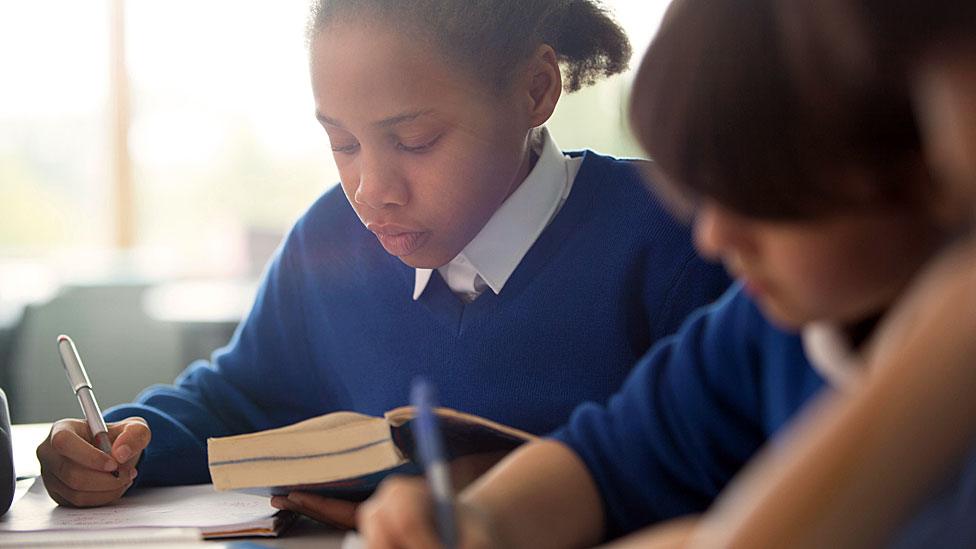
- Published29 November 2016
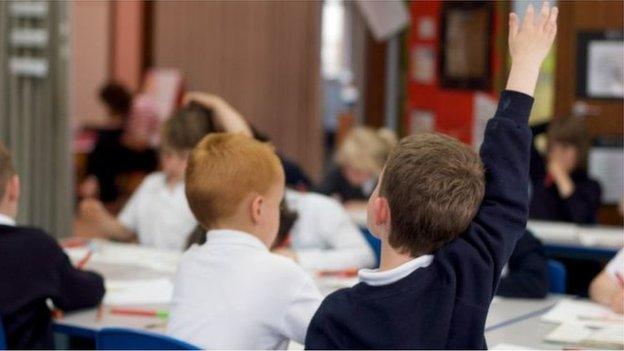
- Published16 November 2016
